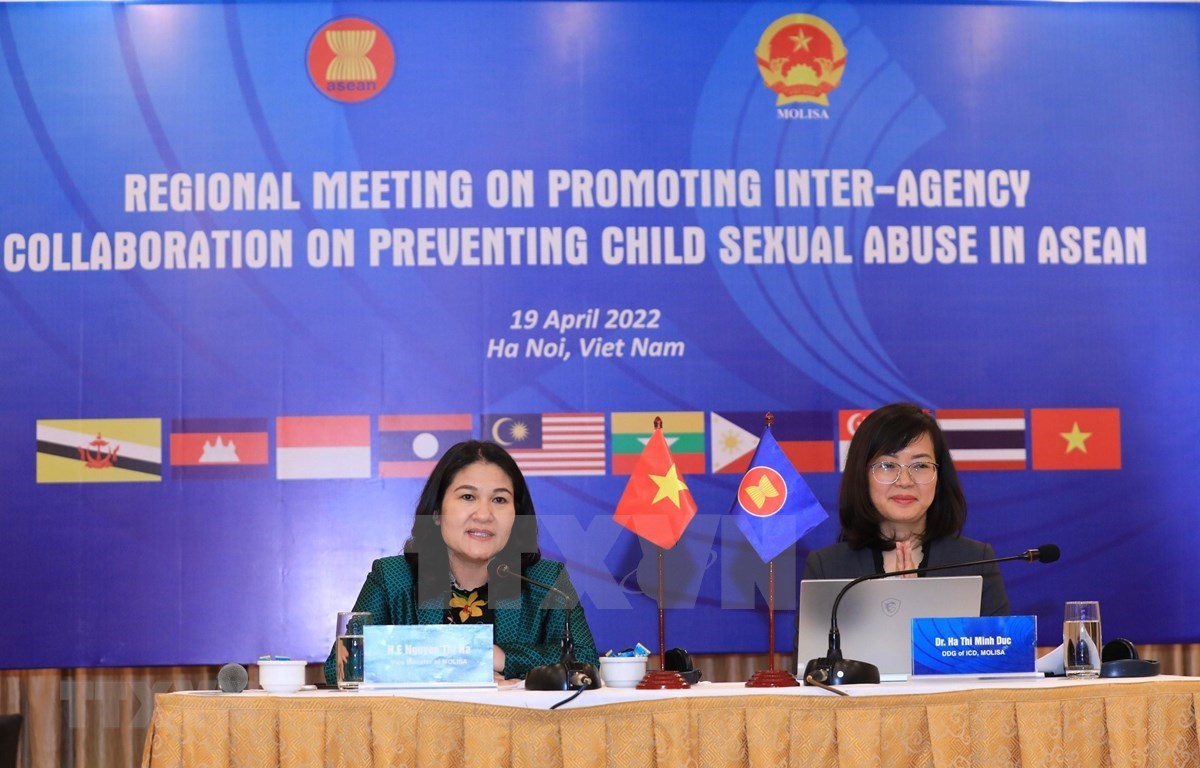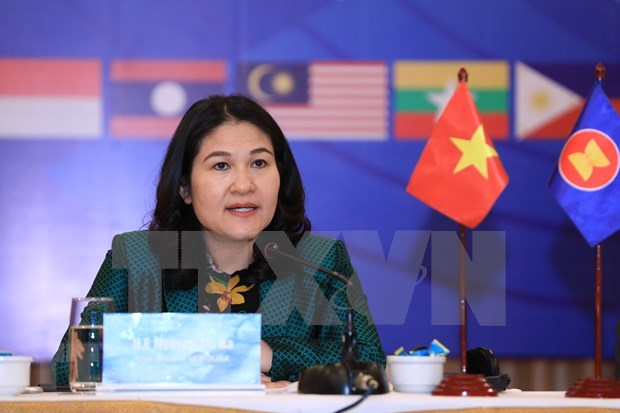ASEAN promoting inter-agency cooperation to prevent child sexual abuse online

Child sexual abuse online has grown exponentially because of the COVID-19 pandemic and rapid development of digital technologies.
The meeting was held as part of the ASEAN Commission on the Promotion and Protection of the Rights of Women and Children (ACWC) during 2021-2025, chaired by Vietnam.
In her opening remarks, Deputy Minister of Labour, Invalids and Social Affairs Nguyen Thi Ha hailed all initiatives to promote inter-agency cooperation to prevent child sexual abuse, helping create a sound environment for child development.
She spoke highly of the ACWC, ASEAN Secretariat, UNICEF, sponsors, non-governmental organisations and individuals for their efforts to ensure children’s rights for an ASEAN community in which no one is left behind as prescribed in the Convention on the Rights of the Child.
At the event, participants updated the situation and sexual abuse impacts on children in ASEAN and other parts of the world, as well as ASEAN’s past initiatives to handle child sexual abuse.
 Deputy Minister of Labour, Invalids and Social Affairs Nguyen Thi Ha speaks at the event. (Photo: VNA)
Deputy Minister of Labour, Invalids and Social Affairs Nguyen Thi Ha speaks at the event. (Photo: VNA)
Besides gaps in legal frameworks and human resources, ASEAN member states lack inter-agency cooperation to tackle the issue, they pointed out, adding collaboration among healthcare, education and judiciary sectors within ASEAN has been inefficient.
Deputy head of the Department of Child Affairs under the Ministry of Labour, Invalids and Social Affairs Nguyen Thi Nga said Vietnam developed an inter-sectoral mechanism for child care and protection, in which responsibilities were assigned to competent authorities with child protection work. Emergency cases must be carried out within 12 hours.
The Government also issued a national action plan on preventing sexual abuse and violence against children from 2020-2025, under which intersectoral collaboration would be enhanced while policies and regulations related to children’s rights would be completed.
Last year, Vietnam launched a national programme to protect children online in an attempt to make the internet a healthy and safe place for children to learn, socialise and express themselves.
Under Decision No. 830 signed by Prime Minister Pham Minh Chinh, the national programme on child protection online - the first national-level programme on this issue in Vietnam - aims to protect the privacy of children and prevent and handle acts of abuse.
Specifically, the programme focuses on supplying children with age-appropriate knowledge and skills so that children can self-identify and be able to protect themselves when being online.
It also maintains a healthy network environment, develops an ecosystem of Vietnamese applications for children to learn, socialise and express themselves in a safe and creative way.
The programme includes initiatives in deploying new technologies such as artificial intelligence and big data to automatically collect and analyse early warnings on content not suitable for children.
Websites with the national “.vn” domain and those with IP addresses in Vietnam will be required to self-categorise content suitable for children's ages. Those who provide online services and applications for children must deploy solutions to protect kids and assist parents or caregivers in managing children's use of applications and services.
Network operators and digital platform providers such as Google, Facebook, and Zalo must apply artificial intelligence technology and big data analysis to filter videos and clips with malicious content.
Under the programme, businesses are encouraged to develop information security solutions to protect children on the internet.
The programme also integrates online notification channels on issues related to children with the national child protection hotline at 111. This will become the only application on the network environment to reflect and share issues related to children.
In addition, the programme includes building and integrating into the educational programme the training of digital skill sets for children by age. Children will be taught a number of skills such as common knowledge of the internet and social networks; information security skills; personal information protection; and how to recognise abuse.
A UNICEF survey of children and young people in Vietnam showed that one-fifth of the total number of children surveyed said they have been victims of cyberbullying.
Reports from the Department of Child Affairs under the Ministry of Labour, Invalids and Social Affairs showed that after nearly 16 years of operating the hotline 111, the department has received over 4 million calls to discuss issues related to children./.













